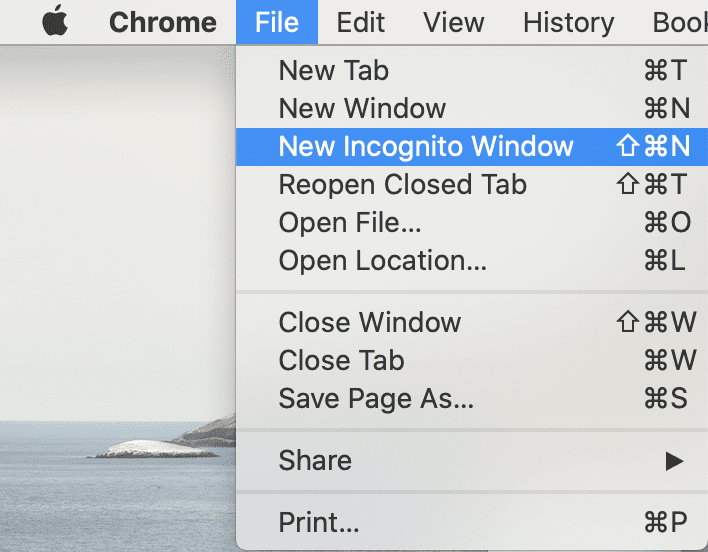Landing a job is a nuanced process. When you are actively seeking a job, you might update your LinkedIn profile to get noticed by recruiters or learn about a company’s hiring process so you feel confident going into an interview. The truth is, however, that what you do before you’re actively looking for a job greatly impacts your chances of success when trying to obtain a job offer. Developing a strong personal brand can help you get noticed by recruiters and help to ensure you make a good first impression on an employer.
Overview
In this article, we:
- Define personal branding and outline why it matters for your career;
- Discuss how social media contributes to your personal brand;
- Discuss ways to identify and understand your personal brand; and
- Provide actionable steps you can take to improve your personal branding so that you can land your dream job whether now or in the future.
What Is Personal Branding?
By definition, a personal brand is “a widely-recognized and largely-uniform perception or impression of an individual based on their experience, expertise, competencies, actions and/or achievements within a community, industry, or the marketplace at large.” In the essence, your personal brand is how you are perceived by others which determines people’s impression of you. Before the rise of the internet, your personal brand was constructed based on person-to-person interactions or deliberate communication. However, with over 4.7 billion people using social media around the world there’s a good chance that the first impression someone has of you is from an encounter you’re not aware of (i.e., viewing your online profiles). With that, it’s important to assess whether your online presence gives the same first impression you’d want to make if you were actively engaging with a person.
Your first impression has likely already been made even before you meet someone for the first time.
What Impacts Personal Branding?
Your personal brand determines how you are perceived by others. It is the amalgamation of everything about you including your “experience, expertise, competencies, actions, and/or achievements.” This could be displayed in a single document, website, or another communication medium, or someone could manually compile this information using various sources. With the rise of the internet, people can curate a detailed impression of you based on what they find online about you. Before the internet, you could choose the information you shared with particular people. For example, you may have shared your personal life with your friends, but kept the details away from your work colleagues. That is, you could curate your personal brand by deliberately choosing what you shared depending on who you were engaging with. Now, your first encounter often occurs without you even knowing it. Research shows that 92% of companies are using social media for hiring and that 75% of hiring managers look up candidate social profiles. What this means is that the impression you make on hiring managers may occur before an interview and is determined by what people find online about you. Consider whether people in your professional life are consuming information that you would prefer to only be known by certain audiences.
Thus, your first impression is no longer based on the first 7 seconds you spend with an employer. It is increasingly being made during a one-sided encounter that the employer makes with your social profiles.
Is Social Media Bad for My Personal Brand?
Although your social profiles may harm your career if not monitored and deliberately curated, they can also be leveraged as a tool so you can put your best foot forward. Social media is playing a larger role in personal branding than ever before. If you are intentional with your online presence, you can capitalize on social media’s potential for developing your personal brand. With it, you showcase your personality, connect with others and grow your network, and ultimately drive success. A person with a strong personal brand may be more successful in their job hunt as they’ll be able to make a strong first impression and demonstrate that they are a good fit for a role. In addition, they may attract recruiters who offer them job positions they weren’t necessarily looking for.
What Can I Do To Develop My Personal Brand?
The first step in personal branding is to identify your vision statement and values. By understanding who you are, you’ll know how you want people to perceive you. From there, audit your online presence and evaluate whether it aligns with the impression you want to make . Here are some steps you can take to understand your current The first step in personal branding is to identify your vision statement and values. By understanding who you are, you’ll know how you want people to perceive you. From there, audit your online presence and evaluate whether it aligns with the impression you want to make. Here are some steps you can take to understand your current personal brand, identify how you want to be perceived, and fine-tune your online presence so that it aligns with your personal brand.
1) Figure out who you are and what you want to be known for
As mentioned, personal branding is about reflecting your personality through your social media platforms. To be able to do that, you first need to know who you are. Ask yourself questions like “What do I want to do and excel in?”, “What motivates me?”, “What do others compliment me on?”, or “What drains my energy?”, etc. When it comes to a career it’s important to understand yourself first.
Your personal brand is more than just a reflection of who you are today. It is a roadmap of what (and where) you want to be in the future. So identify who you are today and where you want to end up. Try envisioning what attributes you want to have in 5 or 10 years, and determine the steps you would need to take to get there. If you want to be in a senior role, ambition may be a good attribute to convey in your personal brand!
💡Tip: Incase you are struggling with defining yourself, you can always ask your close friends, family, or co-workers to help you out.


2) Put yourself in the shoes of the recruiter
Recruiters often scavenge the internet for information about potential candidates. Do you know what would show up if a recruiter Googled your name? To start, open an Incognito window in your browser (this is important to ensure your search history doesn’t impact what comes up first). Browse the search engine results page to see what comes up. Make a list of items or content that doesn’t align with your personal brand. If it’s content you have direct control over, remove it or make it private. If it’s content someone else has control over, ask them to take it down or make it private. Starting today, be intentional about what you post online. This doesn’t mean you cannot post anything personal online, but rather that you should make sure it is only accessible to the people you want it to be seen by.


3) Keep track of industry trends
Industries change quickly. If you want to be in a certain industry, it’s important to start by understanding where the industry is today and where it is headed. Follow thought leaders to stay current. If you are passionate about a certain aspect of your target industry, post about it, tweet about it, and show your dedication. Again, this can passively attract people looking for employees passionate about a certain topic. You may also want to follow particular hashtags to stay up-to-date with trends and changes. If you want to use your personal brand to attract recruiters, tailor your social content to changes in the industry and make it interesting and engaging for your audience.


4) Unify your social media accounts
Consistency is one of the most important characteristics of successful brands. It’s important to reflect the same characteristics across different platforms. If Nike showcased activewear on their Facebook page and formal attire on their website, you’d be confused about who they are and what they offer. The same goes for personal branding. Developing a personal brand requires you to be consistent; how you show up on one platform should be the same as you show up on others. You may want to consider using the same biography, value statement, or photo across your social profiles so that you are easily identifiable.
5) Share content you are interested in
Sharing content demonstrates that you are interested and passionate about a certain topic. If you like writing, you may consider writing your articles and posts on a certain topic. Or, if writing is not your thing (yet), but you're looking to show that you're engaged in your industry, you can share relevant articles on your social media accounts. This helps the people viewing your profiles understand more about you and get a better sense of who you are. Find a balance between sharing content related to your career and content related to your hobbies (if they are separate).
💡 Tip: Avoid simply reposting links to articles. Instead, share your thoughts along with the articles themselves.
6) Focus on professional content
Your hobbies and family are extremely important and you may choose to share content about each of these on your social profiles. Depending on your professional goals, such as whether you want to become a thought leader in your industry, you may want to tailor your content to be more professional-focused. Alternatively, you can share certain content privately so that it’s only available to your friends or people you follow back. If a prospective employer Googles you, consider what they will see and ensure it aligns with what you want them to see.
7) Network, network, network
Regular and effective networking is a must to grow your professional circle. You can network both in-person and online. Online events that offer networking opportunities include Jarvis’ Women in Technology webinars where you can connect with people both during and after an event. After the panel is finished speaker, people are connected to another one, both from the audience, as well as from the speaker list. In-person events also allow you to grow your network. Ensure you get the most out of networking events by following up with people afterwards and connecting on various platforms.
You can also network using various digital platforms by joining online groups and engaging with them. For example, you can comment and contribute to existing posts or create your own. This provides opportunities to connect with your peers, as well as individuals from companies you would like to work for. For example, there are LinkedIn groups for all sorts of categories – geographic locations, alumni groups, industry-focused groups, etc.
Networking allows you to develop your personal brand and leave the first impression you want to make!
Keep building your brand
Building your brand isn’t a one-time effort. It’s not another task on your to-do list. It’s an ongoing endeavour that evolves based on your personal goals, professional goals, and values. Part of developing a personal brand is creating a solid presence online that aligns with how you want to be perceived by others. Keep your profiles up-to-date, stay in touch with your contacts, and build and maintain your network. As the digital ecosystem and your career evolve, so will your personal brand. Make sure to reflect those changes on your social media platforms.
And remember – recruiters will form an impression of you regardless of whether (or how much) effort you put into it. If you put the effort in, you can determine the impression they get.


MARKETING LEAD
Aida Hadzic
As a Marketing Lead at Jarvis, Aida works on developing marketing projects with a strong focus on telling Jarvis’ inspiring story. She is passionate about communications in all shapes, forms, and colors.
SHARE THIS ARTICLE:


Jarvis is a global technology advisory and talent solutions firm. We partner with some of the world's most impactful companies to shape the future of tomorrow. Our focus on community engagement, diversity and values-based culture has enabled us to become one of Canada's fastest-growing companies.
Related Insights
SHARE THIS ARTICLE:
Stay In The Loop
Like what you read? Enter your information below to be notified about valuable content, upcoming events, and other trending tech information.
